TWH – Today is the second Sunday in May which means its Mother’s Day for Americans as well as others around the world. Writers often attribute this modern celebration to ancient festivals honoring the mother Goddess or Christian tributes to the Virgin Mary. While most religious cultures did or do recognize maternity in some way, the connections between any of these sacred celebrations and our modern secular holiday are tenuous at best.
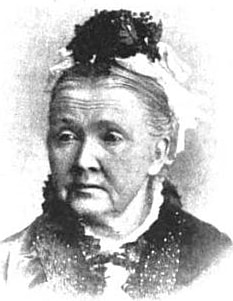 Some believe that the American holiday finds its earliest roots in an old English religious tradition called “Mothering Sunday.” On the fourth Sunday of Lent, Christians journeyed far and wide to a “mother” cathedral rather than worshiping in their local “daughter” parish. Over time the day evolved into a secular holiday during which children gave gifts to their mothers.
Some believe that the American holiday finds its earliest roots in an old English religious tradition called “Mothering Sunday.” On the fourth Sunday of Lent, Christians journeyed far and wide to a “mother” cathedral rather than worshiping in their local “daughter” parish. Over time the day evolved into a secular holiday during which children gave gifts to their mothers.
It wasn’t until the late 1800’s that there was a call for a uniquely American Mother’s Day celebration. After seeing the horrors of the Civil War, Julia Ward Howe, a suffragist, abolitionist, writer and poet, began an aggressive campaign for a national Mother’s Day. On the second Sunday in June of 1870, Howe made a passionate plea for peace and proclaimed the day Mother’s Peace Day.
We will not have great questions decided by irrelevant agencies. Our husbands shall not come to us, reeking with carnage, for caresses and applause. Our sons shall not be taken from us to unlearn all that we have taught them of charity, mercy and patience….The sword of murder is not the balance of justice. Blood does not wipe out dishonor, nor violence indicate possession.
Not only did Howe call for a national holiday, she also called for a women’s council that would “promote the alliance of the different nationalities, the amicable settlement of international questions, [in] the great and general interests of peace.”
Unfortunately, her dream never came into being. For ten years, Howe personally funded most of the Mother’s Peace Day celebrations. When she died so did Mother’s Peace Day.
Around the same time, in a small town in West Virginia, a similar idea was being cultivated. Ann Maria Reeves Jarvis, a Civil War nurse, had actively organized a series of “Mother’s Day work clubs.” Their mission was to teach women proper childcare, provide war relief, curb infant mortality, and tend to the battle-wounded. Like Howe, Jarvis advocated for peace and neutrality. She insisted that her mothers’ clubs treat both the Union and Confederate soldiers. After the war, Jarvis and other women created a “Mother Friendship Day” when mothers and former soldiers, from both sides of the war, came together in reconciliation.
After Ann died in 1905, her daughter, Anna Jarvis decided to honor her mother’s work. In 1907, on the second Sunday of May, Jarvis held the first Mother’s Day celebration in her own home. Then, in 1908, Anna convinced two churches, one in Philadelphia and one in her hometown of Grafton, West Virginia, to celebrate the new holiday. Each mother was given a white carnation, her mother’s favorite flower.
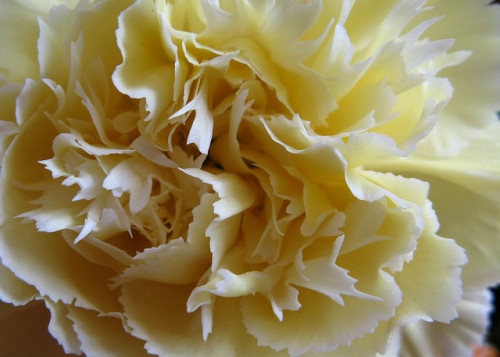
Photo courtesy of Flickr’s play4smee
Anna began a campaign for a national Mother’s Day celebration. By 1911, forty-seven states were celebrating Mother’s Day. Then in 1914, President Woodrow Wilson named the second Sunday in May “Mother’s Day,” a nationally recognized holiday.
Unfortunately, success brought way more than Jarvis ever wanted. Mother’s Day fell victim to commercialization. Themed Cards and other products were produced and sold en masse. The Post Office printed stamps depicting Anne Reeves Jarvis’ with a white carnation. Mother’s Day was big business. By 1940, the disillusioned Jarvis had turned her back on the holiday completely. She was even arrested for protesting a few Mother’s Day events. Jarvis reportedly died poor, blind and alone in a Philadelphia sanitarium.
While modern Mother’s Day contains only tenuous connections to spiritual practice, the holiday is not without its own profound importance. It is possible to extend a spiritual sense to a secular holiday by extrapolating upon its basic meaning. Anna Jarvis conceived the holiday as an intimate day to thank one’s own mother for her sacrifice For activist Julia Ward Howe and Anne Reeves Jarvis, Mother’s Day was a symbolic celebration of motherhood. They saw women, specifically mothers, as the healers and peace makers.
For many Pagan and Heathen women, Mother’s Day is a unique opportunity to connect a mainstream secular tradition to their own spiritual journeys as mothers. On this day, Pagan mothers can reflect on their maternal roles, examine their mundane responsibilities and witness their role and how it is mirrored within their theology.
Reflections on Motherhood from Pagan women:
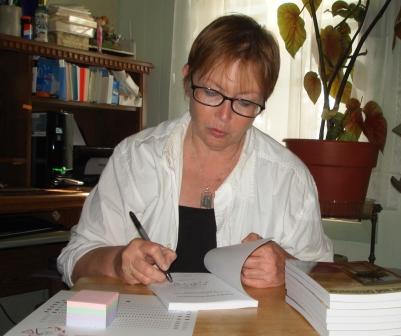
Byron Ballard
I came to biological motherhood in my mid-30s–elderly prima grava–and was already known as a Pagan in my community. My daughter is a “cradle Pagan,” and because I knew there would be questions as she went through public school, we were always very open about our spirituality. It made me a somewhat reluctant ambassador for my religion and gave me the opportunity to talk to all sorts of people about Paganism… Being a mother has made me a better advocate, a better priestess. And being those things has also made me a better mother. – Byron Ballard, Pagan author, Advocate, Priestess.
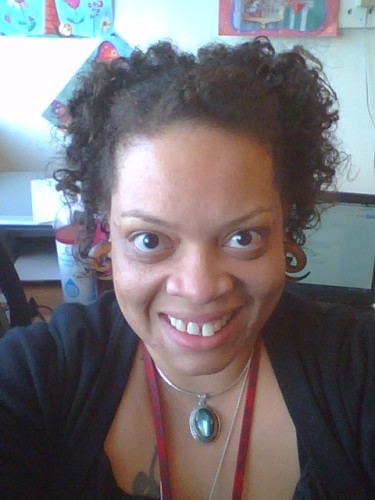
Crystal Blanton
A mother is a child’s first experience with the Goddess in this incarnation. That makes the role of mothering more important than just a set of expectations, but it is a spiritual obligation that will support a growing child in connecting with the feminine aspect of divinity, and with the miracle of manifestation. The lineage of love and extension of the Goddess that is before you in the eyes of your child should be the most motivating factor for living a healthy life. We teach what we are to our children by what we show. – Crystal Blanton, Author and Priestess
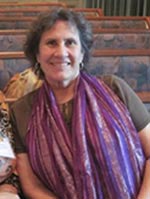
R. Watcher
As Witches and Pagans who truly believe in the Earth as a sacred and living being we must do all that we can every day to live that belief. Nowhere can we better put that belief into practice than in the kitchen. From catching the running water from the tap while it’s heating, to using left-over food… Nowhere is there a more frequent and clear reminder of how close to and dependent upon the Earth and all it produces, than the kitchen and its proper management on a day to day basis. – R. Watcher, Mother, Aunt, Great Aunt, and kitchen manager both professionally and personally for over 40 years.
Raising my three children as a Pagan, rather than raising my kids as pagans, was critical to my concept of choice and personal freedom. For a time, I had an Atheist, a Buddhist and a Christian on my apron strings–today, only the latter claims Paganism as his faith, but all understand the universe as the inter-connective tissue of the magic of humanity. As a Pagan mom, I have experienced the heartbeat of the universe from within my own belly, have seen my heart walk away on tiny feet and have known the fear and thrill of knowing that my children echo a cosmos so sacred, not even I could contain its sound with my love. My advice to them when they become parents will be simple: don’t damage baby wings with labels, institutions or expectations. Let them explore and feel that sacred thump for themselves . . . and take lots of pictures. – Seba O’Kiley, High Priestess of the Gangani Tribe of Alabama
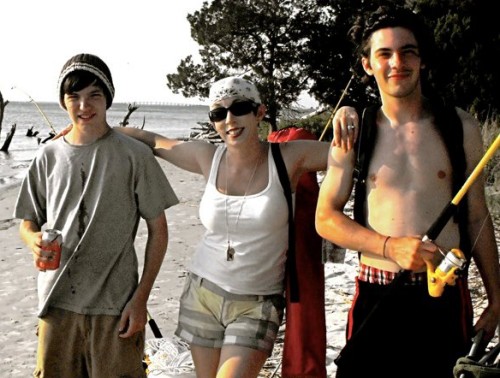
Seba O’Kiley with her sons
My favorite quote is from my son Owl at age seven, [He said,] “If reincarnation is real, that means my dead body is out there!” My advice [to new Mothers] is to always be honest with kids, even about complicated things. They’ll get it in their own way. – Sirona
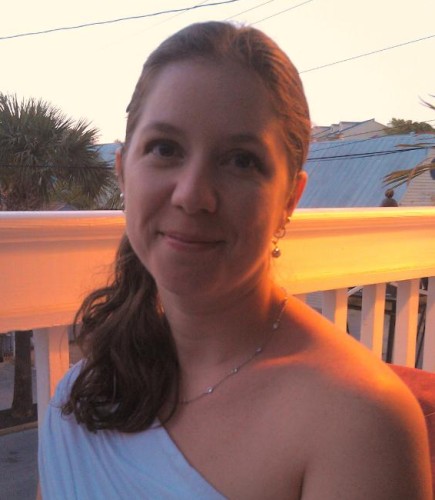
Sirona
Although the American Mother’s Day is in itself not historically religious, the job of motherhood is most certainly more than mundane drudgery. In fact, becoming a mother can be one of the most transformative initiatory experiences. The raising of a mother comes day-to-day with the raising of the children. The entire experience is shaped and colored by one’s own strengths, weaknesses, and of course, spiritual beliefs. In honoring our mothers, grandmothers, aunts and any other woman who has stepped into a maternal role, we also honor the many colors of motherhood, the many faces that it holds, the many forms that it takes and the very personal spiritual journey that it brings.
Happy Mother’s Day!
The Wild Hunt is not responsible for links to external content.
To join a conversation on this post:
Visit our The Wild Hunt subreddit! Point your favorite browser to https://www.reddit.com/r/The_Wild_Hunt_News/, then click “JOIN”. Make sure to click the bell, too, to be notified of new articles posted to our subreddit.
That’s a powerful quote by Julia Ward Howe. Thanks for bringing it to my attention.
Happy Mother’s Day to all of you out there!
In my UU congregation this Sunday we held a Mothers’ Day service, including “Lady of the Seasons’ Laughter,” an overtly Goddess-themed hymn from the UU hymnal. During Joys & Concerns I lifted up the child born in captivity and just rescued with her mother and two others in neighboring Cleveland (and almost broke up doing it). At least one faith tradition has re-enfolded this holiday as religious.
Baruch Dreamstalker
“By 1940, the disillusioned Jarvis had turned her back on the holiday completely.”
Show respect and do something personal, rather than just support the card industry.
Julia Ward Howe was a Unitarian also Dave, but no one ever seems to remember that.